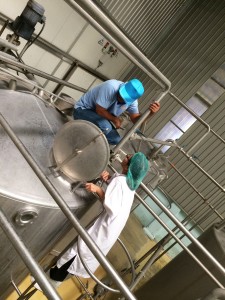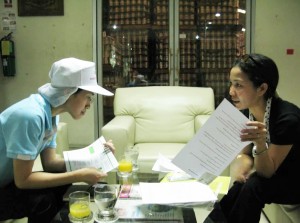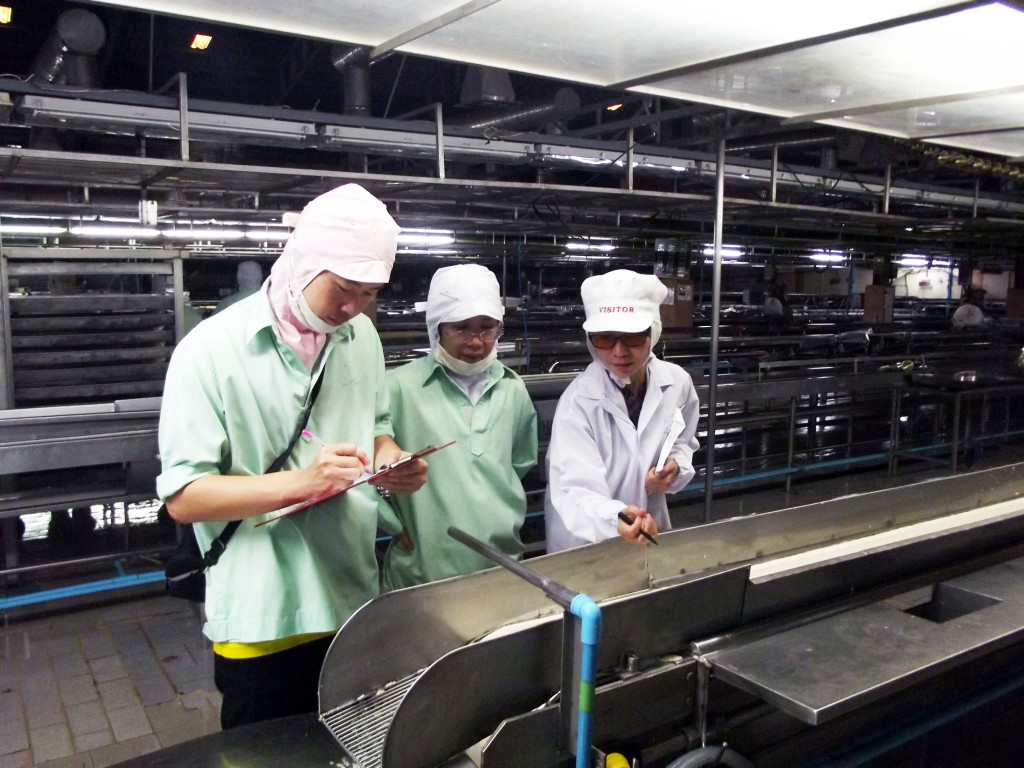
Writer: Rojana Manowalailao, ASEAN Sustainable Agrifood Systems
Napaporn Rattanametta compared her life as a frog living in a coconut shell. With her nine-year experiences working in Thailand’s fruit juice industry she thought she knew a lot, but after starting working in a private partnership project “Improved Product Safety and Quality for the Thai Fruit Juice Industry”, she changed her mind.
 “Working as an auditor for this project, it is like I was given a new pair of glasses that made me sees a different new world. I feel like I came out of the coconut shell I once lived in.”
“Working as an auditor for this project, it is like I was given a new pair of glasses that made me sees a different new world. I feel like I came out of the coconut shell I once lived in.”
Started three years ago, this private partnership agreement between Sure Global Fair (SGF), a global voluntary certification system for fruit processing industry based in Germany, and GIZ’s ASEAN Sustainable Agrifood Systems looked for opportunities in increasing safety and quality standard of Thai fruit juice products in complying with national and international recognized standards.
Since then, climbing a fruit juice stock tank of a two-storey high to check its hygiene becomes common for Ms. Rattanametta as part of her on the job training as the SGF auditor. Opening a cover of fruit pressing machine smelling fermented juice due to improper equipment cleaning additionally becomes her ordinary life. Plus, stretching out her hand inside a peeling machine to take photos in a blind spot for checking residues of cleaning chemical substances becomes her expertise.

“Although there is a cleaning system in all production machines, you cannot rely on it alone. Your fruit juice consumers can be young children and if you are concerned, you should do more in checking your factory hygiene,” she said.
“I do not think it is just about putting the factory to meeting the certified standard. Every quality assurance team of all factories should do the same as the SGF auditor does. When everything is right, your fruit juice quality will be right. Besides, a risk of product damage will be reduced, and consequently, a cost of production will be minimized.
“This should be a common standard to all factories to improve the fruit juice product quality,” she said.
For improving fruit juice safety and quality standard, according to Ms. Rattanametta, two major factors involve selecting good raw materials and cleanliness of the production machines.
“In Thailand, for example, due to a high demand and competition, pineapple fruit juice production factories pay more attention to receiving a large numbers of raw materials for production rather than getting a right kind of the raw materials with no chemical residue and proper maturity.”
Thailand is the number one exporter of pineapple fruit juice. There are about 20 pineapple juice production factories in the country. Ms. Rattanametta visited almost every one of them.
In her three years, she gained her best knowledge and experiences. With SGF she learnt about European fruit juice standard and production techniques and how to produce fruit juice with good taste and safety for consumers, and raise awareness on plant hygiene, for instance.

“My SGF mentor auditor is very knowledgeable and he taught me a lot including auditing tips and techniques. He also said all mistakes occurred during a fruit juice production can be identified from a laboratory sample test analysis.”
Besides on the site auditing, SGF collects fruit juice samples at a production line for lab analysis on safety and authenticity substances.
“When you use unripe raw material, it can tell from the lab result. When the production machines are not clean, it can tell from the lab result. When water is leaking during production, it can tell from the lab result,” she said.
Ms. Rattanametta is now the certified SGF auditor, the only one in Thailand and South East Asia.
“I’m happy and proud that I can take part in improving the Thai fruit juice industry and help the Thai factories who are looking to find solutions for their production problems in getting the answers in improving their products.
“My answers make me sound like a beauty queen, but I am not. I am just the fruit juice auditor,” she said with a smile.”
Ms. Rattanametta is also a project manager on food safety for ASEAN Sustainable Agrifood Systems.
The project “Improved Product Safety and Quality for the Thai Fruit Juice Industry” recently ended in April this year.